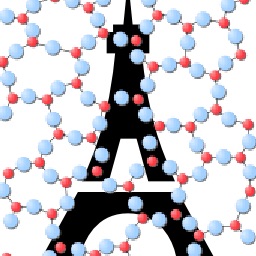Many natural materials offer unusual mechanical performances. Natural cellular materials like bones simultaneously exhibit low weight and superior mechanical properties and can maximize modulus for a given density. Inspired by such natural cellular structures, manmade architectured porous materials such as foamed polymers, ceramics, or metals offer promising routes toward the development of lightweight, yet ultra-stiff materials.
However, starting from a bulk solid, a decrease in density (or an increase in porosity) can result in a drastic degradation of stiffness. To this end, scaling laws have attracted significant attention to describe the origin of the relationship between density and stiffness in porous solids. Interestingly, the nature of the scaling laws in porous cellular materials can be tailored by carefully controlling the mesoscale structure geometry, which has led to the development of new metamaterials featuring unusual mechanical properties. A recent study from University of California, Los Angeles (UCLA) scientists led by Dr. Mathieu Bauchy has shown that such scaling laws can be extended to atomic structures.
